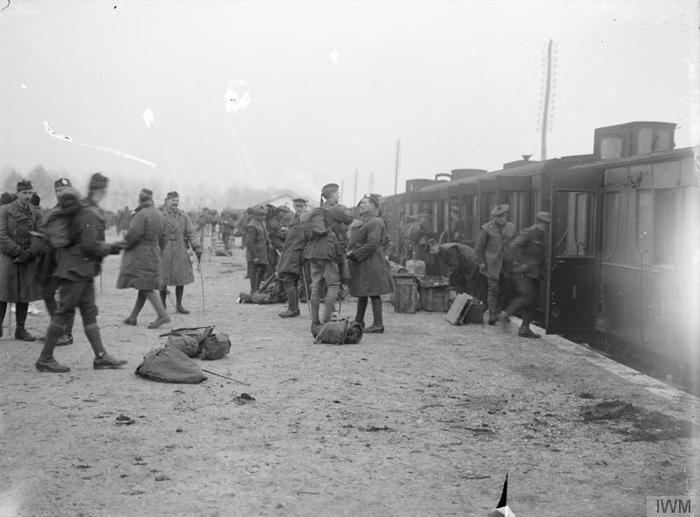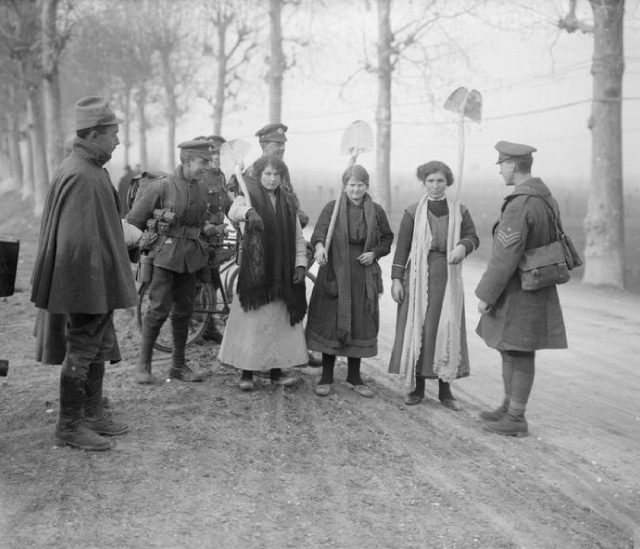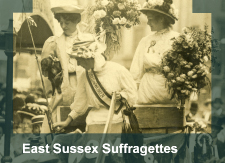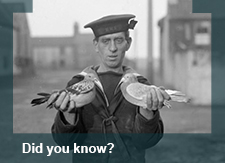This summer I worked at the Eastbourne Library researching every kind of information (names, news and images) on soldiers killed, wounded or missing in action during the First World War for the local study collection.
In particular I worked on the archive of the Eastbourne Chronicle a local newspaper issued every Saturday, which is now known as the Eastbourne Herald. Through issue after issue I could follow all the activities of the war: from the recruiting and training of soldiers to the impact of the conflict on everyday life.
At the beginning of the war the names of the dead soldiers were in the part of the newspaper generally dedicated to the births, marriages and deaths but with the passing of time they became so many that a special space was created for publishing the Roll of Honour about the East Sussex. Reading the Roll of Honour I could follow the traces of some soldiers mentioned as missing or wounded and find them two or three weeks later among the deaths or more rarely with the survivors.

British troops detraining at a railway station on the Italian Front, December 1917. Photograph probably taken at Fontaniva near Venice. © IWM (Q 26526)
Sometimes a soldier’s name can be featured in the news with subjects apparently not directly connected to the war. For this reason during my research I read different articles and one drew my attention; “An Eastbournian in Italy”. It was about AJ Vinall, a private of the Royal Warwickshire Regiment, who wrote his impressions about the life in the small village where he lived. Vinall didn’t write where he stayed, probably in the North East were there was the front between Italy and the Austro – Hungarian Empire. Between 1917 and 1918 most British troops were concentrated on the Eastern Alps and the Royal Warwickshire were here. The involvement of British troops in Italy has been largely overlooked in favour of the Western Front.
The village of which Vinall spoke was most likely in this area but I can’t say precisely where: the poor condition of the villagers he describes were unfortunately very common. Indeed Vinall didn’t write on the war at the Italian front but on the hard life of this people:
What the villagers live on passes my comprehension. There seems to be no sit-down meal, but bits eaten here and there, and while going about their work. The staple food seems to be polenta, made from maize flour, and it helps out sometimes when bread is short
Vinall write about things which may be common for us today but not for him or the readers of the newspaper:
I have not seen the country people drink anything but vino, made from grapes. It is given to the children as well as adults, and seems to be their only drink. I have never tried vino, as I have seen its effects too much, but must not write more about that.
Upon reading these articles for the first time the main thing I liked was Vinall’s concern for the poor condition of the villagers and his openness regarding them:
Another item of interest is that some of the people sit in the sheds with the cows to keep warm and save firing. I tried one night, but my nostrils did not allow me to remain. Even children have gone back to the old ages, and we find them sleeping in the mangers.
The fighting on the Italian Front during the First World War was marked by harsh weather conditions and terrain deeply unsuited for fighting.
The article was of March 1918 and the Eastbourne Chronicle promised more news from him and I was very interested because I would like read others of his impressions on my country.
Unfortunately AJ Vinall never wrote again and I didn’t find other information about him in the Chronicle.
This story was submitted by Valentina Rossetto. If you have any furhter information about AJ Vinall then please contact us.








